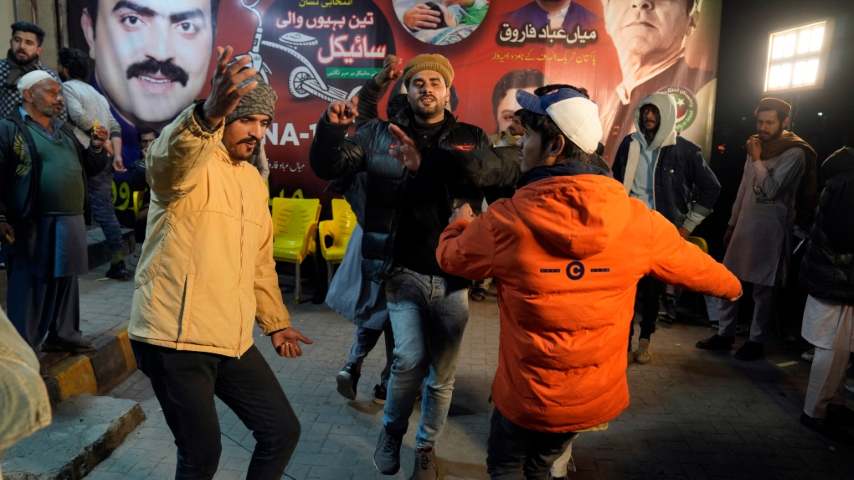
In Lahore, Pakistan, on Saturday, February 3, 2024, backers of former Prime Minister Imran Khan joyfully danced during an election campaign. (Photo credit: AP Photo/K.M. Chaudary)
In the heart of Islamabad, a palpable tension grips the political landscape as Pakistan braces for its upcoming parliamentary election. Amidst swirling controversies and mounting grievances, the United Nations, through its highest human rights body, has sounded an alarm over what it describes as a troubling "pattern of harassment" targeting members of former Prime Minister Imran Khan's party.
Liz Throssell, the voice of the UN High Commissioner for Human Rights, raised concerns during a press briefing in Geneva, urging Pakistani authorities to ensure an electoral process that is not just free, but unequivocally fair. Yet, as the nation stands on the cusp of a pivotal electoral event, allegations swirl like leaves in a tempest.
The Pakistan Tehreek-e-Insaf party, led by Khan, has cried foul, alleging a litany of woes ranging from harassment to the suppression of their right to rally support, echoing whispers of injustice in the corridors of power. Conversely, authorities have steadfastly refuted these claims, painting a starkly different picture of the electoral landscape.
At the heart of this turmoil lies Imran Khan himself, a figure both revered and reviled, now relegated to the shadows of political disqualification and legal entanglements. His party, his supporters, lament what they perceive as a heavy-handed retribution for daring to challenge the status quo, particularly the formidable Pakistani military.
Throssell's words resonate with a sense of urgency, as she articulates the UN's disquiet over the alleged mistreatment meted out to Khan's political brethren. In her plea for fairness, she underscores the indispensable need for all eligible parties to compete on a level playing field, a clarion call for the preservation of democratic principles.
Yet, as the countdown to Thursday's election ticks away, Pakistan finds itself confronting not only the spectre of electoral malfeasance but also the enduring spectre of discrimination against its minority communities. The plight of the Ahmadis relegated to the fringes of societal acceptance since 1974, casts a long shadow over the nation's democratic aspirations.
As the stage is set for the electoral spectacle, caretaker authorities assure the populace of their unwavering commitment to a fair process, despite the ominous backdrop of militant threats and lingering doubts about the integrity of the vote. International observers stand poised to scrutinize the proceedings, their watchful gaze a testament to the global significance of Pakistan's democratic experiment.
Yet, amidst the fervour of political theatre, one cannot ignore the backdrop of economic turmoil and partisan strife that threatens to overshadow the electoral process. With Imran Khan sidelined, the spotlight now falls squarely on figures like Nawaz Sharif, a political veteran seeking redemption, and Bilawal Bhutto-Zardari, heir to a fabled political dynasty.
In the final hours of campaigning, the air crackles with anticipation as candidates vie for the electorate's favour, each promising a brighter tomorrow. But lurking beneath the veneer of optimism lies a palpable uncertainty, a nagging doubt about the integrity of the process and the nation's democratic soul.
As Pakistan stands at a crossroads, the world watches with bated breath, keenly aware that the outcome of Thursday's ballot will not only shape the nation's destiny but reverberate far beyond its borders.















